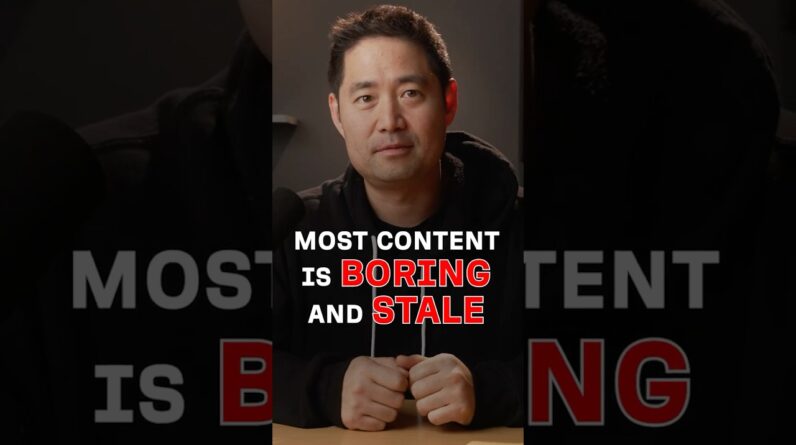
I, as a seasoned SEO writer, am excited to share with you today the essential SEO strategy basics for the year 2024. In this blog post, I will delve into the latest trends and techniques that will help you stay ahead of the curve in the ever-evolving landscape of search engine optimization. As someone who has honed my skills in the realm of SEO, I am eager to impart my knowledge and expertise to empower you in achieving better online visibility, increased traffic, and ultimately, greater success for your website or business. So, let’s dive in and discover the key fundamentals of SEO strategy in the year 2024.
SEO Strategy Basics for 2024
Introduction
As a content writer, I understand the importance of staying up-to-date with the latest trends and strategies in the ever-evolving field of SEO (search engine optimization). In this article, I will delve into the essence of an effective SEO strategy for 2024. We will explore the pivotal components that define a successful strategy, how to align business goals and allocate resources effectively, the importance of strategy beyond mere tactics, and how to measure success and leverage strengths and weaknesses against competitors.
Uncover the Essence of an Effective SEO Strategy through Three Key Components
-
Keyword Research and Analysis: One of the fundamental elements of any SEO strategy is thorough keyword research and analysis. This involves identifying the keywords and phrases that your target audience is using to search for products or services related to your industry. By understanding the language and preferences of your audience, you can optimize your website’s content to rank higher in search engine results pages (SERPs).
-
On-Page Optimization: On-page optimization encompasses various techniques to ensure that the structure and content of your website are search engine-friendly. This includes optimizing title tags, meta descriptions, heading tags, and URLs, as well as ensuring high-quality and relevant content throughout the site. Creating well-structured and engaging content not only improves your website’s visibility but also enhances user experience.
-
Link Building and Off-Page Optimization: Building high-quality and relevant backlinks from reputable websites plays a crucial role in improving your website’s authority and ranking. Off-page optimization also involves social media marketing, influencer outreach, and other strategies to enhance your brand’s online presence. By implementing effective link building and off-page optimization techniques, you can significantly boost your organic search visibility.
Defining an SEO Strategy is Crucial for Career Growth and Business Impact
In today’s digital era, the importance of SEO cannot be overstated. Organizations that invest in a well-defined SEO strategy can attain significant business advantages. Let’s examine why defining an SEO strategy is crucial for both career growth and business impact:
-
Improved Search Engine Visibility: By implementing a robust SEO strategy, you can boost your website’s visibility in search engine results, leading to increased organic traffic. This increased visibility not only helps individuals seeking career growth in the SEO field but also drives more potential customers towards your business.
-
Enhanced User Experience: A well-optimized website offers a seamless user experience, making it easier for visitors to navigate and find relevant information. This positive user experience has a direct impact on improving conversion rates, customer satisfaction, and overall business performance.
-
Competitive Edge: Creating and executing an effective SEO strategy enables you to stay ahead of the competition. By identifying and leveraging your strengths and weaknesses against your competitors, you can gain a competitive edge, attract more customers, and increase market share.
-
Long-Term Success: A solid SEO strategy focuses on long-term success rather than short-term gains. By implementing sustainable tactics, you can establish a strong online presence and ensure continuous growth for your career or business.
Understand the Pivotal Components of a Successful SEO Strategy
To formulate a successful SEO strategy, it is essential to understand its pivotal components:
-
Defining Business Goals: Clarify your business goals and objectives to align your SEO strategy with your overall business strategies. This ensures that your SEO efforts are targeted and aligned with your desired outcomes.
-
Identifying Challenges: Identify the specific challenges and obstacles that hinder your website’s search engine visibility. By understanding these challenges, you can develop tailored strategies to overcome them and improve your rankings.
-
Allocating Resources Effectively: Allocate your resources, such as time, budget, and personnel, effectively to achieve maximum results. Determine which areas of your SEO strategy require more attention and investment and prioritize accordingly.
-
Monitoring and Measurement: Continuously monitor and measure the effectiveness of your SEO strategy. Utilize tools and analytics to track important metrics such as organic traffic, keyword rankings, and conversion rates. This data will help you identify areas of improvement and make data-driven decisions to optimize your strategy further.
Gain Insights on the Importance of Strategy beyond Mere Tactics
While tactics play a vital role in SEO, it is crucial to emphasize the importance of strategy beyond mere tactics. Here’s why:
-
Long-Term Vision: A strategy provides a long-term vision and roadmap for achieving your SEO goals. Tactics, on the other hand, are short-term actions that contribute to the overall strategy.
-
Alignment with Business Goals: An effective SEO strategy aligns with business goals. It takes into account the specific needs and objectives of the organization and focuses on delivering results that impact the bottom line.
-
Adaptability to Algorithm Updates: Search engine algorithms are constantly evolving. By focusing on strategy, you can adapt to these updates and ensure a sustainable approach to SEO, rather than relying solely on short-lived tactics.
-
Holistic Approach: A strategy addresses all the essential components of SEO, including keyword research, on-page optimization, link building, and user experience. It considers the big picture and aims to optimize every aspect of your online presence, leading to long-term success.
Learn about the Elements that Define a Successful SEO Strategy
To define a successful SEO strategy, consider the following elements:
-
Comprehensive Keyword Research: Conduct in-depth keyword research to identify the most relevant and valuable keywords for your business.
-
Competitor Analysis: Analyze your competitors’ strategies and identify their strengths and weaknesses. This information will help you develop strategies to outperform them in search rankings.
-
Content Creation and Optimization: Create high-quality, engaging, and SEO-friendly content that aligns with your target audience’s preferences and needs. Optimize your content with relevant keywords and structure it for easy readability.
-
Mobile Optimization: With the increasing use of mobile devices, optimizing your website for mobile responsiveness is essential. Ensure that your website loads quickly, has a mobile-friendly design, and provides a seamless user experience.
-
Local SEO: If your business primarily operates in a specific geographical location, consider implementing local SEO strategies. This includes optimizing your website for local keywords, creating location-specific landing pages, and leveraging online directories and review platforms.
Discover How to Measure Success and Leverage Strengths and Weaknesses against Competitors
To measure the success of your SEO strategy and understand how your strengths and weaknesses compare to competitors, consider the following:
-
Track Key Metrics: Utilize tools like Google Analytics to monitor key metrics such as organic traffic, bounce rate, keyword rankings, and conversion rates. Regularly analyze these metrics to identify areas of improvement and measure the effectiveness of your strategy.
-
Conduct Competitor Analysis: Continuously monitor the strategies and performance of your competitors. Identify their strengths and weaknesses in terms of organic visibility, content quality, backlink profiles, and user experience. This analysis will help you identify opportunities to outperform them and gain a competitive advantage.
-
Leverage SEO Audits: Regularly conduct comprehensive SEO audits to identify any technical issues or areas of improvement on your website. Addressing these issues will improve your website’s performance and overall search visibility.
-
Stay Updated: Stay up-to-date with the latest SEO trends, algorithm updates, and industry best practices. This knowledge will help you adapt your strategy and leverage new opportunities as they arise.
Understanding the Difference between Strategy and Tactics, and Strategy and Planning
To better understand the nuances between strategy and tactics, as well as strategy and planning, consider the following:
-
Strategy vs. Tactics: Strategy refers to the overall approach and long-term vision, while tactics are the specific actions and techniques employed to execute that strategy. Tactics are tactical maneuvers that contribute to the larger strategy.
-
Strategy vs. Planning: Strategy outlines the overarching direction, goals, and objectives, while planning focuses on the detailed steps and processes required to achieve those goals. Planning is the tactical implementation of the strategy.
Conclusion
In conclusion, a well-defined SEO strategy is crucial for anyone seeking career growth in the field of SEO and for businesses looking to make a significant impact in the digital landscape. Understanding the essential components, aligning business goals, and effectively allocating resources are key to formulating a successful strategy. By going beyond mere tactics and focusing on long-term strategies, businesses can gain a competitive edge and achieve sustainable growth. Regular monitoring, measurement, and adaptation are essential to ensure ongoing success in the ever-changing world of SEO.
FAQs (Frequently Asked Questions)
-
What is the role of keyword research in an SEO strategy?
Keyword research helps identify the words and phrases your target audience is using to search for products or services. By optimizing your website’s content based on these keywords, you can improve your search engine visibility and attract relevant organic traffic. -
How do tactics differ from strategy in SEO?
While strategy outlines the overall approach and long-term vision, tactics are the specific actions and techniques used to execute the strategy. Tactics contribute to the larger strategy and help achieve the desired goals. -
What are the benefits of allocating resources effectively in an SEO strategy?
By allocating resources effectively, you can optimize your efforts, focus on high-priority areas, and achieve maximum results. It helps you make the most of your time, budget, and personnel, ultimately leading to improved outcomes and business impact. -
Why is it important to measure the success of an SEO strategy?
Measuring the success of an SEO strategy allows you to track its effectiveness, identify areas of improvement, and make data-driven decisions. It helps you understand what is working and what needs adjustment to optimize your strategy further. -
What should be included in a comprehensive SEO strategy?
A comprehensive SEO strategy should include elements such as keyword research, competitor analysis, content creation and optimization, mobile optimization, and local SEO. These components, among others, contribute to a well-rounded approach for improving search engine visibility and driving organic traffic.





